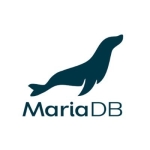The solution's most valuable feature is the row-level security that helps mask and encrypt data. In industries like healthcare and retail marketing, the details of patients' diseases and diagnostic reports can be masked using rollover encryption. In the financial sector, credit card numbers, user IDs, and passwords can also be masked using row-level encryption.
Oracle Cloud has a bit of a learning curve, so from an improvement perspective, we need to have a simple way to connect to computing in Oracle Cloud. Oracle Cloud should be leveraged to have structured, semi-structured, and unstructured data. Oracle Cloud should be like Amazon S3 bucket and needs to come with the versioning part. If the tool can provide options for versioning the data, it would be more useful.
There is a need to have backward compatibility from version to version. If a tool has all its versions, it would be better. Sometimes, we are missing the backward compatibility function in Oracle. Some versions are deprecated and removed. Migration somewhat involves coding of data and coding of queries, along with pre-querying the data.
I have been using Oracle Database for ten years. I am a user of the tool.
The tool is always upgraded as per the user's requirements. So I don't feel any issue. Stability-wise, I rate the solution a nine out of ten.
It is a good and scalable solution. Scalability-wise, I rate the solution a nine out of ten.
I have seen multiple use cases in different companies. I see that for one million or two million files, it works fine, but with twenty million files, it slows down because it lacks NoSQL properties. Around 30 to 40 developers use the tool in my company.
I have ten years of experience with the product, so I am habituated to installing the solution all the time. I did not find any issues during the installation of the product. The product is simple to install, especially because the instructions offered by the solution are very user-friendly. The tool offers a very good User experience during the installation phase. Each installation step is very well documented for a user to be able to understand.
I rate the product's initial setup phase as a nine out of ten.
The product's deployment process can be completed in a very optimal amount of time.
The tool is expensive. Compared to its stability and eligibility, the tool is expensive, but if I consider the tool's ROI to be better, the tool is affordable with its set of features.
I use Oracle Database in our company's daily operations as we have a data pipeline which can cleanse the database. We have many connectors to ingest the data in Oracle Database. In the data lake, we do perform transformation, after which the cleansed data is moved to the warehouse.
The security features of Oracle Database match our data protection needs since it provides a particular user ID and a password while binding to the roles and privileges, like in the case of admin accounts and user accounts.
When it comes to data analysis, the tool has a very huge kind of data in it. In our company, we used to write queries, and Oracle helped us analyze the data, after which we can select a particular data set based on what we require. The queries are very fast.
The migration from Oracle Database 18c to Oracle Database 19c has affected my operations because I think that some of the features are being deprecated during each of the migration processes. I can rate the whole migration process as seven out of ten.
I started with Oracle Linux 7, and now I use Oracle Database 21c. The tool has matured and is good.
I recommend the tool to others. It is better to use Oracle's functions, whichever will improve scalability and app performance. The tool has many areas that will help us query data, code data, and perform analytics.
I rate the tool an eight out of ten.

















